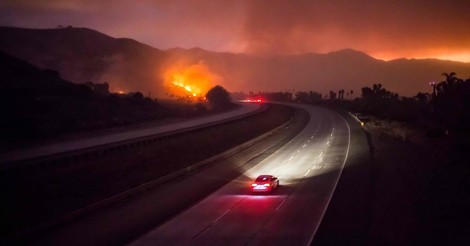Your podcast discovery platform
Curious minds select the most fascinating podcasts from around the world. Discover hand-piqd audio recommendations on your favorite topics.

piqer for: Climate and Environment Global finds Globalization and politics
I'm a freelance journalist, currently based in Madrid. I used to be a News Producer at CNBC in London before, but I thought a little bit more sun might do me good. Now I write for several news organizations, covering a range of topics, from Spanish politics and human rights for Deutsche Welle to climate change for La Marea.
Fire Up Ahead
Around half a dozen wildfires have been hitting California hard this week. The southern half of the state has been burning since Monday, with thousands leaving their houses and hundreds of square miles lost to the flames. We've seen some very apocalyptic images on social media.
The wildfires have been fanned for extremely strong winds, called Santa Ana winds in some parts of the state and Diablo winds in others. These seasonal streams are not uncommon, but the high temperatures and drought conditions have increased the risk of fire. Plus, the winds are much stronger than ever before (quite literally).
This is a great article to understand the relation between this catastrophe and climate change. It's impossible, most of the times, to attribute a single weather event (be it disastrous or not) to climate change, and this is no exception. But it's possible to forecast the conditions that favor them.
Climate change may not be to blame for this. Meteorologists suggest a ridge of air over the Pacific Northwest, perhaps related to the cooling of Pacific waters under current La Niña conditions, is the likely culprit. But more generally, many climate change forecasts suggest that there will be less rain in Southern California in the fall in the future, and more rain in December and January. That means fires could continue later into the fall, greatly extending the fire risk season.
This is a very simple article, and that's exactly what I liked about it. It's not often that one finds this level of accuracy while keeping language accessible and engaging. And this is also the second article by Henry Fountain that I recommend. It may not be the last.
